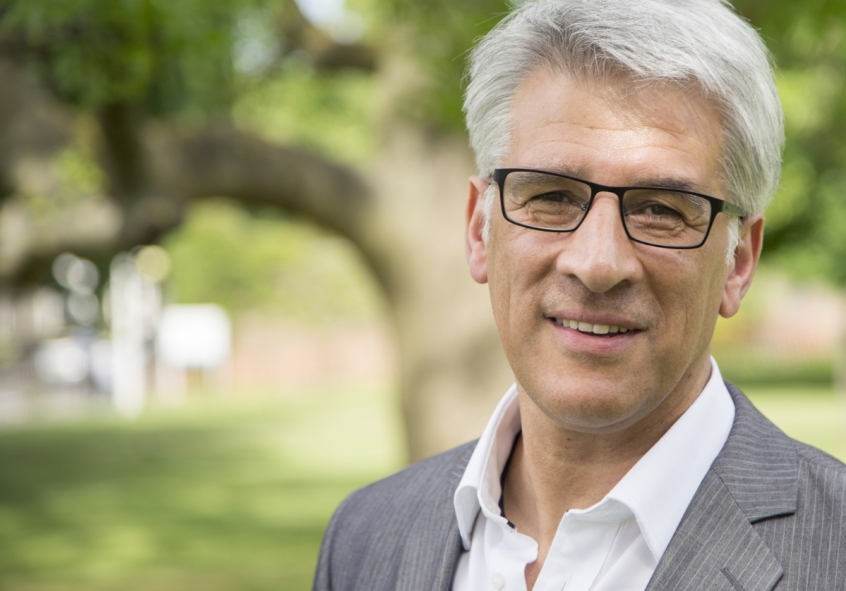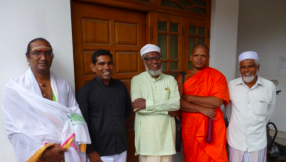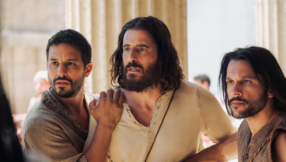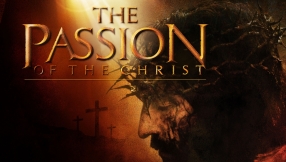Influential UK evangelical Steve Chalke is calling for a 'new Reformation', 500 years after Martin Luther's 95 theses ushered in the first.
The Rev Canon Chalke is today launching 'Chalke Talk', a weekly video blog through which he will offer his own 95 theses – or as he puts it 'questions' – that he says today's Church 'cannot afford to ignore'.

'In the early years of the 16th century, German priest and scholar Martin Luther came to believe that the shape of the established Church and its relationship to the State did not fit the needs of the world in which he was called to live and serve,' Chalke said.
'In the early years of the 21st century it is clear, once more, that the shape of the established Church and its relationship to the State no longer fits the needs of the world in which we are called to live and serve. It is time, once again, to reimagine the role of faith, Church and its place in the public square.'
Chalke, a Baptist minister who like Luther is no stranger to ecclesial controversy and conflict, told Christian Today that his proposed Reformation is not about division, but about debate. He seeks to honour Luther's interrogative spirit by asking: 'have we got the wrong kind of church?'
Conservatives may balk at the suggestion that the Church should seek align itself to the needs of the world, and would instead urge a faithfulness to Scripture, not the whims of society. Chalke says he agrees, and is insistent that the Church should not become so consumed by its contemporary context that it reads said context into Scripture, seeking proof texts for what its already determined to affirm. This is something Chalke says Luther himself was guilty of, at times misreading the New Testament in light of his own 16<sup>th century medieval conception of 'faith' and 'works'.
Luther 'did a lot of things right, and a lot of things wrong. We've been living with [both] ever since,' Chalke says. Both conservatives and liberals he says, are in danger of reading their own views on to the Bible, rather than letting the Bible 'read' them.
His 95 'questions', in weekly videos no more than five minutes long, will include questions flowing particularly from Luther (such as debates about faith and works, and the role of Judaism), and others looking at more contemporary ethical issues. For example, Chalke says, in a society where cohabitation is the new romantic-relational norm, what is the case for 'marriage'? Issues surrounding sexuality will also be addressed: Chalke says that while debate about homosexual relationships has been prevalent, there has been less discussion about transgenderism – something he hopes to change.
Chalke, who in recent years has come out increasingly in favour of LGBT rights within the Church, including affirming same-sex marriage, is clear that as far as he's concerned, he's still seeking the wisdom of Scripture in the challenge of applying 'timeless truths to ever-changing circumstances and moral challenges'.
Though conservatives may feel he's capitulated to popular culture, Chalke says he's actually 'quite a critic of some gay and lesbian culture...about some of their ethics. Most Christians wouldn't know I do that because they're not engaged enough' with it.
'I believe that all relationships should be lifelong and faithful and monogamous,' Chalke says. He opposes promiscuity and polygamy, but by being in conversation says he offers a 'message of hope, not sheer rejection' for the LGBT community.
Having long been in conservative evangelical circles, Chalke faced backlash for his changing views in recent years, but he says that 'anybody's theology is always emerging'. From his perspective, the Church over time has already shifted its views on divorce, remarriage, slavery and the role of women – so it's no stranger to reform.
Chalke says he's just seeking debate to enable the church to disagree 'without maligning each other'. Looking at his personal experience, he says that many jump from disagreement to assuming 'he's apostate, he's going to burn in hell, he's not a Christian, he doesn't believe the Bible anymore'.
The legacy of the 16<sup>th century Reformation may be largely one of schism and intense antagonism, but that's at the heart of Chalke's own vision for reform – one in which Christians on opposing sides can actually be known by their 'love and unity'. Reading Scripture in community that truly listens, he says, is one key to reading it faithfully.
He emphasises that he is outlining questions, not answers for the Church – but questions he believes are essential if the people of God are to meet people's needs and be faithful to God.
'We all read, we all interpret [The Bible]' Chalke says, but 'if we can't ask ourselves questions, then we are lost'.
Hosted by the Open Church Network, the first episode of 'Chalke Talk' can be found here.
You can follow @JosephHartropp on Twitter













